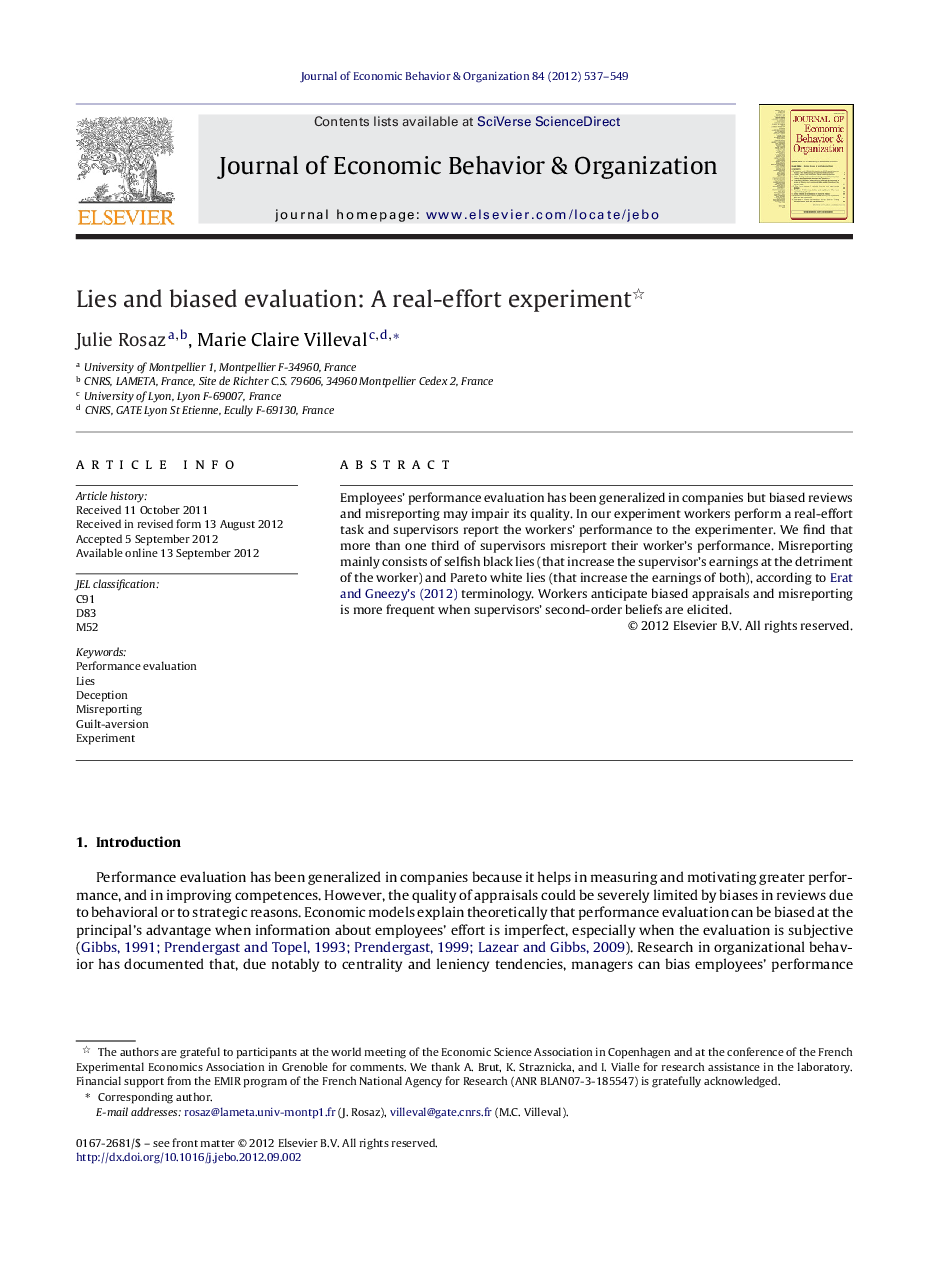| Article ID | Journal | Published Year | Pages | File Type |
|---|---|---|---|---|
| 883725 | Journal of Economic Behavior & Organization | 2012 | 13 Pages |
Employees’ performance evaluation has been generalized in companies but biased reviews and misreporting may impair its quality. In our experiment workers perform a real-effort task and supervisors report the workers’ performance to the experimenter. We find that more than one third of supervisors misreport their worker's performance. Misreporting mainly consists of selfish black lies (that increase the supervisor's earnings at the detriment of the worker) and Pareto white lies (that increase the earnings of both), according to Erat and Gneezy's (2012) terminology. Workers anticipate biased appraisals and misreporting is more frequent when supervisors’ second-order beliefs are elicited.
► We investigate supervisors’ evaluation biases, using the Erat and Gneezy's (2012) typology of lies. ► Only a fraction of supervisors misreport workers’ performance. ► Misreporting mainly consists of selfish black lies and Pareto white lies. ► Less confident workers underestimate Pareto lies; more confident workers are quite accurate in predicting selfish lies. ► Eliciting second order beliefs increases the likelihood of misreporting.
